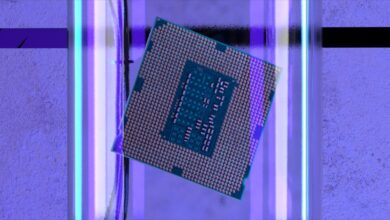Rivian Automotive: A Comprehensive Overview Of Current Market Dynamics And Strategic Movements

$RIVN
Rivian Automotive Inc. (NASDAQ:RIVN), a prominent player in the electric vehicle (EV) industry, has been making significant strides in the automotive market. Founded in 2009 and headquartered in Plymouth, Michigan, Rivian focuses on producing electric trucks and SUVs with an emphasis on sustainability and innovation. The company aims to differentiate itself in the competitive EV market by targeting the luxury and off-road segments, offering vehicles that combine high performance with environmentally friendly technology. As the EV market continues to expand, the strategic positioning and unique product offerings position it as a key competitor in this evolving industry.
In the ever-evolving landscape of the electric vehicle (EV) industry, Rivian Automotive continues to make significant strides despite facing a myriad of challenges that are symptomatic of broader sectoral issues. This analysis delves into the current state of Rivian, juxtaposing its developments with industry trends and strategic decisions that shape its trajectory. Rivian has established itself as a notable player in the electric vehicle market, initially gaining attention with its innovative electric pickup trucks, SUVs and delivery vans. The downturn in stock performance, which saw the company’s shares decline by 56% year-to-date, Rivian’s commitment to expanding its product line and enhancing vehicle production remains steadfast.
The company’s production outlook has seen adjustments in response to operational realities and market conditions. Rivian reported a substantial reduction in its production forecast for 2024, now expecting to produce only 57,000 vehicles, a stark contrast to earlier more optimistic projections. This recalibration reflects not only internal factors such as production capabilities and strategic focus but also external pressures including market demand and competitive dynamics. Financially, Rivian has not yet achieved profitability, a common challenge among many EV startups. The company’s financial health is under scrutiny, with significant losses reported in recent quarters.
However, Rivian’s management remains optimistic about reaching profitability in the near future, driven by improvements in manufacturing efficiency and cost management. The strategic shift towards producing more competitively priced models like the R2 is expected to broaden its market appeal and drive volume growth. Amidst these challenges, the strategic initiatives continue to evolve. The company is actively exploring new market segments and is poised to introduce lower-priced models to capture a wider customer base. This move is anticipated to enhance the competitiveness against both traditional automotive manufacturers and other EV startups.
Furthermore, the engagement in strategic partnerships and expansions into new technological frontiers, such as advanced battery systems and energy solutions, underscores its commitment to innovation and market leadership. These efforts are aimed at not only improving product offerings but also at strengthening the company’s position in a rapidly transforming industry. While Rivian faces significant challenges, its strategic responses and ongoing initiatives reflect a proactive approach to navigating the complexities of the EV market. The focus on innovation, market expansion and operational efficiency continues to be central to its strategy.
**DISCLAIMER: THIS CONTENT IS FOR INFORMATIONAL PURPOSES ONLY AND SHOULD NOT BE INTERPRETED AS INVESTMENT ADVICE. INVESTING INVOLVES RISK, INCLUDING THE POTENTIAL LOSS OF PRINCIPAL. READERS ARE ENCOURAGED TO CONDUCT THEIR OWN RESEARCH AND CONSULT WITH A QUALIFIED FINANCIAL ADVISOR BEFORE MAKING ANY INVESTMENT DECISIONS.**



